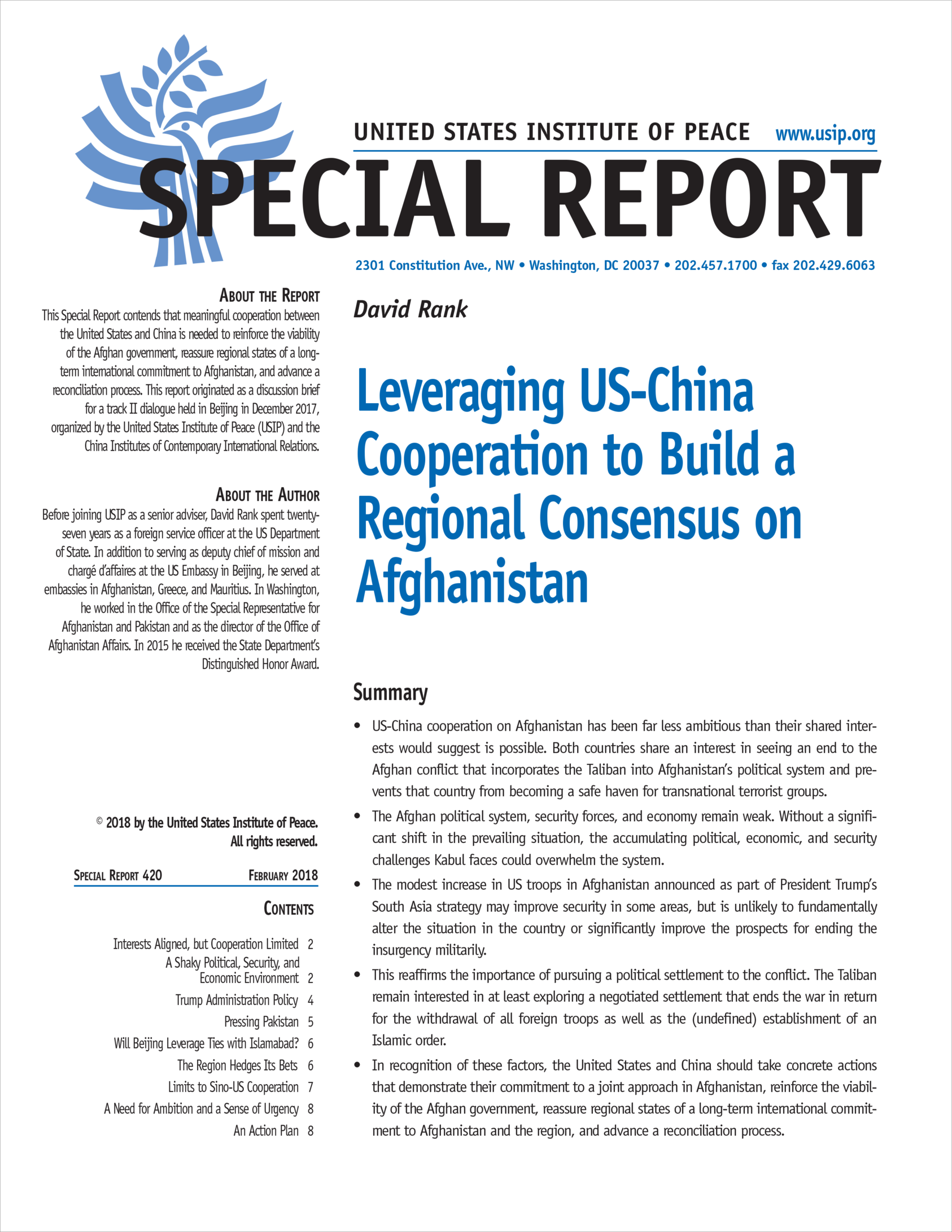The United States and China share an interest in seeing an end to the Afghan conflict that incorporates the Taliban into Afghanistan’s political system and prevents that country from becoming a safe haven for transnational terrorist groups. Yet U.S.-China cooperation on Afghanistan has been far less ambitious than their shared interest would suggest is possible. This Special Report by David Rank, a twenty-seven-year veteran of the U.S. Department of State, contends that meaningful cooperation between the United States and China is urgently needed to repair the frayed regional consensus on Afghanistan and to set the country on a path to reconciliation and stability.
Summary
- U.S.-China cooperation on Afghanistan has been far less ambitious than their shared interests would suggest is possible. Both countries share an interest in seeing an end to the Afghan conflict that incorporates the Taliban into Afghanistan’s political system and prevents that country from becoming a safe haven for transnational terrorist groups.
- The Afghan political system, security forces, and economy remain weak. Without a significant shift in the prevailing situation, the accumulating political, economic, and security challenges Kabul faces could overwhelm the system.
- The modest increase in U.S. troops in Afghanistan announced as part of President Trump’s South Asia strategy may improve security in some areas, but is unlikely to fundamentally alter the situation in the country or significantly improve the prospects for ending the insurgency militarily.
- This reaffirms the importance of pursuing a political settlement to the conflict. The Taliban remain interested in at least exploring a negotiated settlement that ends the war in return for the withdrawal of all foreign troops as well as the (undefined) establishment of an Islamic order.
- In recognition of these factors, the United States and China should take concrete actions that demonstrate their commitment to a joint approach in Afghanistan, reinforce the viability of the Afghan government, reassure regional states of a long-term international commitment to Afghanistan and the region, and advance a reconciliation process.
About the Report
This Special Report contends that meaningful cooperation between the United States and China is needed to reinforce the viability of the Afghan government, reassure regional states of a long-term international commitment to Afghanistan, and advance a reconciliation process. This report originated as a discussion brief for a track II dialogue held in Beijing in December 2017, organized by the United States Institute of Peace (USIP) and the China Institutes of Contemporary International Relations.
About the Author
Before joining USIP as a senior adviser, David Rank spent twenty-seven years as a foreign service officer at the U.S. Department of State. In addition to serving as deputy chief of mission and chargé d’affaires at the U.S. Embassy in Beijing, he served at embassies in Afghanistan, Greece, and Mauritius. In Washington, he worked in the Office of the Special Representative for Afghanistan and Pakistan and as the director of the Office of Afghanistan Affairs. In 2015 he received the State Department’s Distinguished Honor Award.
